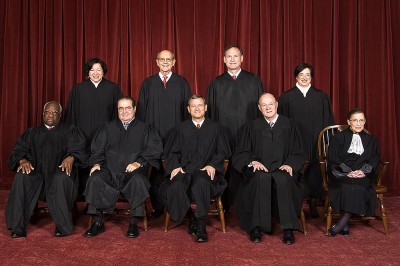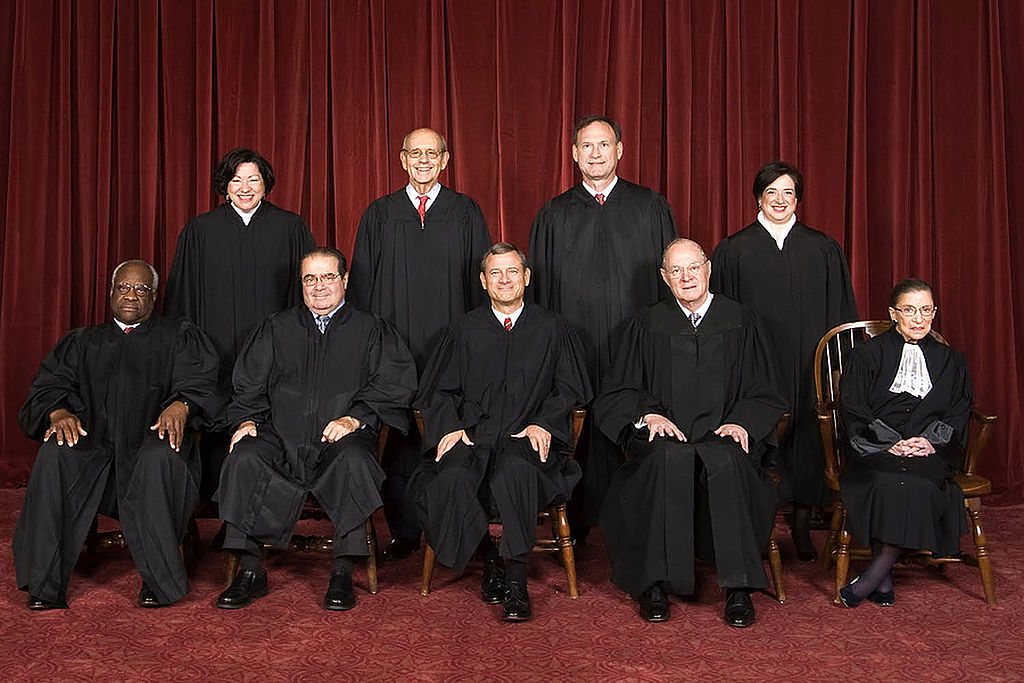 It would be hard to overstate the importance of everything that happened in Washington this week. Much of it was good.
It would be hard to overstate the importance of everything that happened in Washington this week. Much of it was good.
THE GOOD
No doubt about it: the Supreme Court’s ruling on the Defense of Marriage Act was a game-changer. The decision wasn’t perfect — in fact, it generated nearly as many questions as answers. But the gist of United States v. Windsor is that the federal government must treat married same-sex couples the same as their heterosexual counterparts.
Plenty of news outlets have already discussed the benefits that legally married same-sex couples should expect, thanks to the Court’s ruling. In case you missed them, here are three of the better articles:
- ACLU: “After DOMA: What It Means For You”
- Time: “How The DOMA Ruling Will Affect Gay Couples’ Finances”
- CNN: “Same-Sex Marriage Ruling: Financial Impact”
The Court’s ruling could also have a serious impact on how much same-sex couples pay for auto insurance. According to Ben Zitney at OnlineAutoInsurance.com, married folks pay about 10% less on premiums than their single counterparts because they constitute a lower insurance risk.
Today, many insurers offer the married rate to same-sex couples, so long as they’re legally married or in a registered civil union or domestic partnership, and so long as they live in a state that recognizes that relationship. The SCOTUS decision on DOMA didn’t make same-sex marriage legal in every state, but it could nudge insurers’ to offer the married rate to all same-sex couples, regardless of where they live.
That would be great news for the estimated 267,103 same-sex couples who reside in states that don’t acknowledge their relationships. All told, it could save such couples around $100 million in premium payments per year. There are also many other marriage laws and benefits that can now be applied to homosexual marriage too, such as being able to secure eligibility for Social Security spousal benefits when in a same-sex marriage, as well as many other benefits to those that wish to marry the love of their life, whether they are the same sex or not.
THE BAD
As we said, not all of this week’s SCOTUS rulings were good for the LGBT community. In Hollingsworth v. Perry (i.e. the Prop 8 case), the Court failed to issue a broad decision, essentially ruling that the plaintiffs won on a technicality.
That’s still great news for the residents of California, but it doesn’t do much for those living in Alabama, Louisiana, Utah, and the many other states that don’t recognize same-sex marriages or civil unions. It’s true that the majority’s decision on DOMA, written by Justice Kennedy, paves the way for successful challenges at the state level, but that means many more years of struggle.
The Court’s gutting of the Voting Rights Act of 1965 doesn’t weigh in our favor either. As with its DOMA ruling, SCOTUS basically said that state law outranks federal law. Not only does that open the door to legal discrimination against minority voters (LGBTs included) at the state level, but it also curtails the federal government’s ability to help us in our push for equality, since hateful state laws can simply override more fair-minded federal regulations.
We don’t want to seem crabby or disappointed or, worst of all, pessimistic. The death of DOMA is a very big deal for LGBT citizens and the people they love. It certainly puts momentum on our side. But the arc of history is long, and we have many a mile to go.
